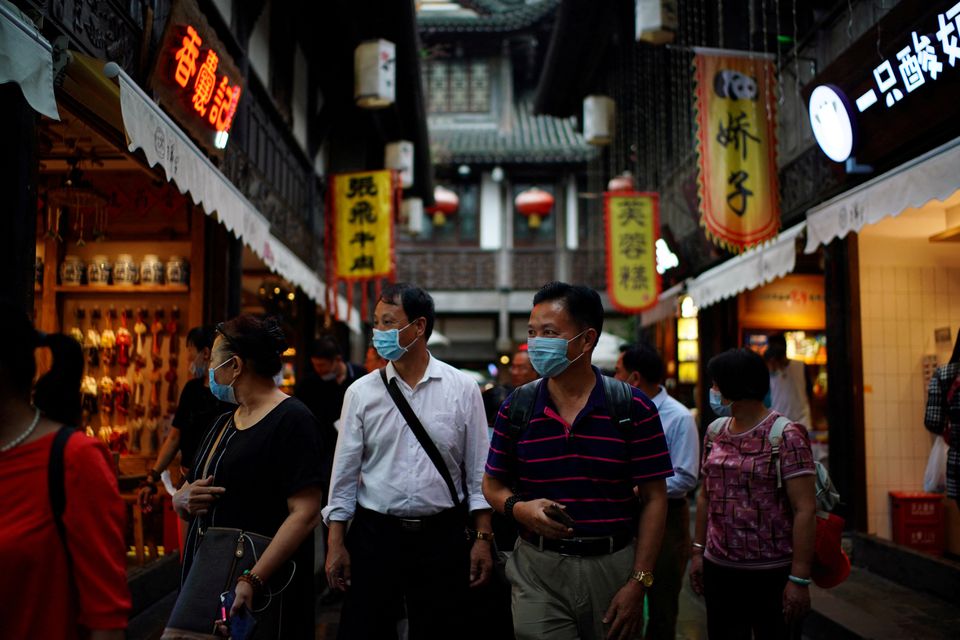BEIJING/SHANGHAI, Dec 29 (Reuters) – Jordan Li, a restaurant owner in the southwestern Chinese city of Chengdu, hopes desperately that next month’s Lunar New Year holidays will help him make up for business lost this year because of COVID-related travel and other restrictions.
Although infections have risen sharply since the central government lifted most of its pandemic-control curbs this month, Li thinks people will still travel to Chengdu. He envisions a different problem: a lack of workers to handle the demand.
Li says he is preparing for a worst-case scenario in which he single-handedly keeps his restaurant open as he “can be the boss, the chef, the waiter and handle the finances all at the same time.”
Stung by the repeated pandemic-related disruptions to his business in the past three years, he does not want to hire staff until operations return to normal.
Li’s predicament underscores challenges for China’s economically crucial services sector as it bets on a post-COVID revival.
With the virus spreading unchecked across the country now, representatives from the services sector say frequent lockdowns have left them without money to expand.
They also must deal with a growing number of sick workers, especially ahead of and during the Lunar New Year next month, a peak travel period in China, when millions head home to celebrate with families.
The contact-intensive services sector, which accounted for 53.3% of China’s gross domestic product (GDP) in 2021, suffered the most amid the country’s anti-virus curbs, which shut down many restaurants and restricted travel.
Beijing this month dismantled almost all such curbs, which have battered the $17-trillion economy.
“There is still a shortage of labour in the services sector in the big cities, and the loss of productivity is quite obvious,” said Dan Wang, chief economist at Hang Seng Bank China. “That situation won’t improve significantly before Chinese New Year, and the rebound isn’t happening simultaneously, but city by city.”
Ordinary Chinese and travel agencies say a return to anything like normal will take months, given worries about COVID and more careful spending because of the impact of the pandemic.
“It’s hard to say how much demand there will be for travel during the Spring Festival because it depends on whether people can recover in time,” adds Zhou Weihong, deputy general manager at Spring Tour, the travel arm of Shanghai-based Spring Group.
CONSUMPTION REVIVAL
Retail sales, a key gauge of consumption, dropped 5.9% in November from a year earlier, and catering fell by 8.4% amid broad-based weakness in the services sector.
Policymakers have set out plans to revive consumption and investment, but the impact of a slowing economy on unemployment and wages is expected to keep a lid on services spending in the near term.
In Lijiang city, a tourist hotspot in the southwestern Chinese province of Yunnan, about half of shops and restaurants have shuttered since pandemic control measures were put in place three years ago.
Standing in a small, empty restaurant this month after curbs on domestic travel were lifted, its owner, surnamed Wen, said business had been bad during the pandemic. There were little prospects for a revival, he said.
“It’s not the COVID restrictions that stopped people coming, it’s because people don’t have money,” he said.
Many shops in Shanghai, Beijing and elsewhere have also closed in recent days with staff unable to come to work, while some factories have already sent many of their workers on leave for the Lunar New Year holidays.
The lack of healthy workers has also led to long waits for deliveries in major Chinese cities.
“We’ve recently recruited two new people, but recruiting is hard,” said Seven, manager of a Blue Frog restaurant franchise in Beijing’s Chaoyang district, the capital’s worst hit in the recent COVID wave.
“The cost of living in Beijing is going up, and even though the pay at our restaurant is quite good, people are then still worried about getting infected on the job.”
Some in the service sector say there remains some hope.
A senior executive at a hotel chain with more than 600 properties in China said the firm was “confident that Lunar New Year is going to be great,” as its website traffic surged 300%-400% after the announcements of eased COVID rules.
The chain is now scrambling to “adjust to the new policies” to get ready for the holidays, the executive said.











